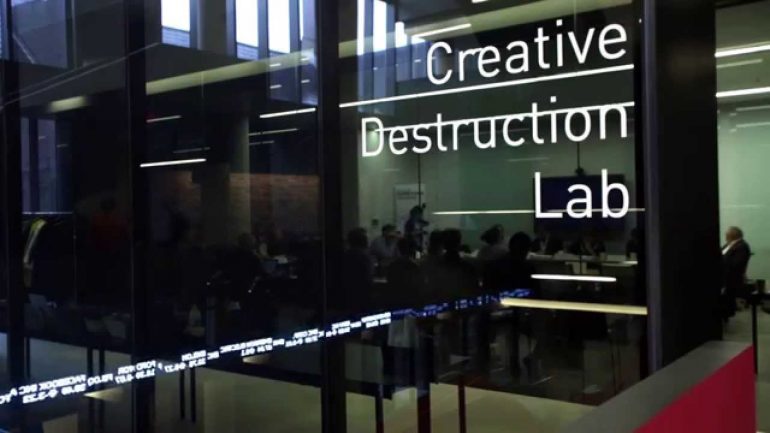The Creative Destruction Lab (CDL), a seed-stage accelerator program for tech companies, is reportedly setting up a location in Halifax, according to a report from Entrevestor.
Currently, the CDL has locations at the University of Toronto and the University of British Columbia.
Entrevestor cited unnamed sources familiar with the situation, who said the CDL has been in talks with Dalhousie University and Volta Labs about opening a Halifax location. As the organization expands across Canada, it’s considering placing sector-specific centres in each of its locations, with plans to make Halifax the “Green and Blue” accelerator for green and ocean technologies.
“I’m really excited for CDL to be coming to Halifax,” one person familiar with the discussions told Entrevestor. “It’s a new model for accelerators.”
The CDL also reportedly held meetings in Toronto about the Halifax expansion, which were attended by Atlantic Canadian representatives such as Jesse Rodgers, CEO of Volta Labs and founding director of CDL, and Jeff Larsen, the executive director of innovation, creativity, and entrepreneurship at Dalhousie University.
In a statement, a spokesperson from Dalhousie University told BetaKit: “We’re enthusiastic about the opportunity and our discussions with CDL to date. There is no agreement finalized, but we’re optimistic about the possibility.”
A CDL spokesperson confirmed that they have been in talks with Dalhousie, and are “excited” about the direction things are headed in.
Currently, the CDL has locations at the University of Toronto’s Rotman School of Management, and the University of British Columbia’s Sauder School of Business, where it houses the Western version of its program.
The CDL uses a goal-setting model to encourage startups to hit several targets over the course of a nine-month accelerator program. The accelerator starts each of its cohorts with a few dozen teams who attend a one or two–day mentoring session to receive a set of milestones from various mentors. The teams work on their tasks, and when they return two months later, those who missed the milestones are asked to leave the program, with others repeat the process until CDL has a handful of graduates.
Launching the CDL in Halifax would have several outcomes, including providing a base for Atlantic Canadian companies to connect with mentors with global reach, as well as adding another component to Dalhousie’s stream of entrepreneurship programs.
While Nova Scotia currently has a shortage of ocean-related startups, launching CDL in Halifax with a focus on attracting ocean-related startups could also position the region as a strong ocean-technology hub.


